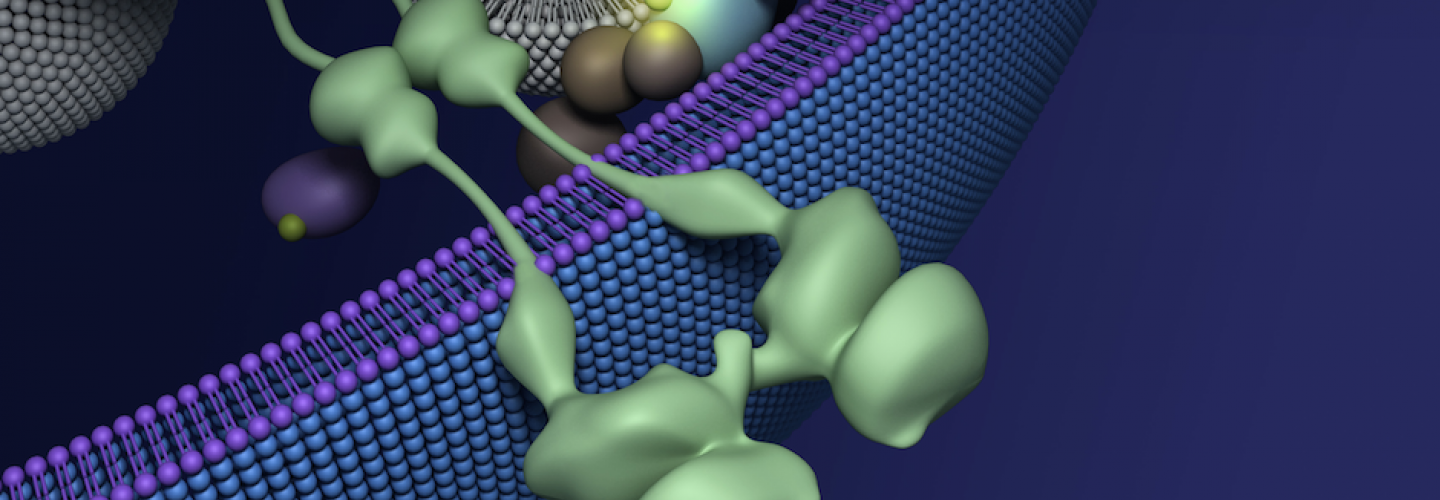Among the most important and interesting areas of scientific investigation are the mechanisms that underlie disease. The study of this topic can be of great interest to those pursuing fundamental research as well as to those drawn to medicine, biotechnology, law, and public health. The introductory and intermediate level Biology course offerings provide a good foundation in understanding the fundamental principles underlying the mechanisms of disease. Course offerings on a more advanced level include a set of seminars and lecture courses that address specific diseases and disease-related mechanisms. This concentration is not designed for the average premedical student. In addition to the introductory sequence, it requires a statistics course, four intermediate level courses (including biochemistry), research experience, and 5 advanced electives encompassing major areas relevant to the biological mechanisms of disease.
To make a request to apply for the Mechanisms of Disease concentration, please log-in to Path@Penn, select Path forms, then choose "Declare/Update Field of Study". Also, please fill out the Student Information form and worksheet for the concentration and submit them to the following link. Please contact bio-undergradaute@sas.upenn.edu with any questions.
*Sophomores and Juniors, when submitting your declaration request on Path@Penn, please do so for the Spring 2024 semester.
*Please note: Requests will not be reviewed until all materials are submitted.
Requirements for the Mechanisms of Disease concentration:
Introductory Biology (1.5 or 3.0 cu):
- Track 1: BIOL 1121 with 1123 (1.5 cu) [BIOL 121 with 123]
- Track 2: BIOL 1101 and BIOL 1102 (3.0 cu) [BIOL 101 and 102]
Chemistry (4 cu):
Choose any 4 of the following courses:
- CHEM 1012 or 1151 with 1101 (1.5 cu) [CHEM 101 or 115 with 53]
- CHEM 1022 or 1161 with 1102 (1.5 cu) [CHEM 102 or 116 with 54]
- CHEM 2410 (1 cu) [CHEM 241]
- CHEM 2420 or 2425 (1 cu) [CHEM 242 or 243]
- CHEM 2450 (1 cu) [CHEM 245]
Calculus (1 cu):
Choose either of the following courses:
- MATH 1400 (1 cu) [MATH 104]
- MATH 1410 or 1510 (1 cu) [MATH 114 or 115]
Statistics (1 cu):
- BIOL 2510 (1 cu) [BIOL 446] or STAT 1110 (1 cu) [STAT 111]
Intermediate Biology (4 cu):
- BIOL 2810 or CHEM 2510 Biochemistry (1 cu) [BIOL 204 or CHEM 251]
- BIOL 2010 Cell Biology (1 cu) [BIOL 205]
- BIOL 2210 Molecular Biology and Genetics (1 cu) [BIOL 221]
- BIOL 3310 Principles of Human Physiology (1 cu) [BIOL 215 Vertebrate Physiology]
- or BIOL 2110 Molecular and Cellular Neurobiology (1 cu) [BIOL 251]
- or BIOL 4004 Immunobiology (1 cu) [BIOL 404]
- or BIOL 2311 Human Physiology (1 cu) [BIOL 210]
Advanced Biology Electives (5 cu):
Select one course on Microbes and Infectious Disease:
- BIOL 3710 Microbial Diversity and Pathogenesis (1 cu) [BIOL 375]
- BIOL 4430 Evolution and Ecology of Infectious Diseases (1 cu) [BIOL 430]
- BIOL 4016 Molecular Mechanisms of Infectious Disease (1 cu) [BIOL 406]
- BIOL 4710 Topics in Prokaryotic Biology: From Molecules to Microbes (1 cu) [BIOL 475]
Select two courses on Genetic Underpinnings of Disease:
- BIOL 4007 Cancer Biology (1 cu) [BIOL 407]
- BIOL 4233 Genetics of Adaptation: How sex, conflict, and pathogens shape our modern genome (1 cu) [BIOL 433]
- BIOL 4266 Molecular Genetics of Neurological Disease (1 cu) [BIOL 466]
- BIOL 4234 Epigenetics (1 cu) [BIOL 483]
- BIOL 4024 Cell Motility and the Cytoskeleton (1 cu) [BIOL 484]
- BIOL 4026 Chromosomes and the Cell Cycle (1 cu) [BIOL 486]
- BIOL 5022 Cell Signaling (1cu) [BIOL 482]
- BIOL 5240 Genetic Systems (1 cu) [BIOL 540]
Select one course on Molecular Genetics and Genomics:
- BIOL 4231 Genome Sciences and Genomic Medicine (1 cu) [BIOL 431]
- BIOL 4536 Introduction to Computational Biology and Biological Modeling (1 cu) [BIOL 437]
- BIOL 5220 Human Evolutionary Genomics (1 cu) [BIOL 522]
Select one additional elective from the 200+ level courses listed above or the following:
Fundamental Biological Processes:
- BIOL 2410 Evolutionary Biology (1 cu) [BIOL 230]
- BIOL 3008 Immunology in Action (1 cu) [BIOL 308] (Can be a substitute for BIOL 4004 [BIOL 404] above).
Microbes and Infectious Disease:
- BIOL 3711 Microbial Diversity and Pathogenesis Laboratory (1 cu) [BIOL 376]
Genetics and Genetic Diseases:
- BIOL 4244 Epigenetics of Human Health and Disease (1 cu) [BIOL 493]
Research Experience (1 cu):
- BIOL 3711 Microbial Diversity and Pathogenesis Laboratory (1 cu) [BIOL 376] Only if not taken as the Microbes and Infectious Disease elective
- BIOL 3999 Independent Study (1 cu) [BIOL 399]
- BIOL 4825 Biochemistry and Molecular Genetics Superlab (1 cu) [BIOL 425]
NOTE: Most 4000 and some 3000 level courses are only offered fall or spring semester.

